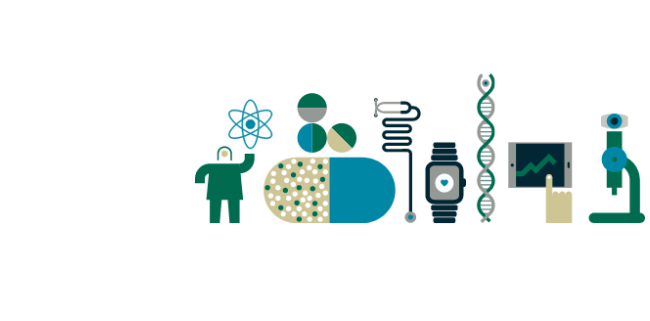Priorities of the Polish presidency in the EU Council: health focus
Published on 11th February 2025

The Polish presidency of the EU Council, held from 1 January 2025 to 30 June 2025, will operate under the motto “Security, Europe!”. This is the second time Poland holds the presidency, the first being in 2011.
Among the priorities of the presidency, health security is a notable highlight. As Poland’s minister of health Izabela Leszczyna said at the press conference on the priorities under the presidency, this is the first time health has been recognised as a significant issue on the agendas of both the Commission and the European Parliament.
As a matter of principle, protection and improvement of human health is only a supporting competence of the EU. When Poland held the EU Council presidency in 2011, health was not among its priorities. However, the experiences of the Covid-19 pandemic and the impact of conflicts beyond the EU borders have changed thinking about the problem, with health elevated to one of the most crucial areas of cooperation among Member States.
Fuelling the EU’s efforts to secure Europe’s pharmaceutical independence
One area of action will be the security of medicinal products’ supply. As stated by the deputy minister of health, Katarzyna Kacperczyk, during the press conference, apart from the works on the reform of the EU pharmaceutical legislation, focus on the issue of critical medicinal products is desirable.
As indicated in the communication from the Commission, the EU has already taken action to ensure the access to medicinal products across the Member States. To name a few:
In addition, Critical Medicines Act was marked in Ursula von der Leyen’s political manifesto ahead of her successful re-election as President of the Commission. According to the European Economic and Social Committee exploratory opinion, the potential Critical Medicines Act should aim to actively support the production of active pharmaceutical ingredients (APIs) and finished medicinal products within the EU, in particular through funding for research and development, infrastructure development and operating costs.
Now, the Polish Ministry of Health intends to hand down postulates for the Critical Medicines Act during the first 100 days of the Polish presidency in the EU Council. According to the deputy minister of health, while the revision of EU pharmaceutical legislation is intended to ensure innovation, competitiveness and the development of the generic sector, the Critical Medicines Act should aim to secure the supply of critical APIs and medicinal products by strengthening the manufacturing capacity of the EU. All of that to ensure real patient safety.
Digital transformation of health care
On 17 December 2024, the European Parliament approved a corrigendum to the position on the proposal for European Health Data Space (EHDS) regulation adopted in the first reading. With this corrigendum, the Council should be able to approve the position of the European Parliament, thus bringing to a close the first reading for both Institutions.
The EHDS aims to enhance healthcare across the EU by improving sharing and accessibility of health data. It encompasses both the primary and secondary use of the data, allowing doctors to obtain more comprehensive information about patients’ health and make more accurate diagnoses on the one hand, and providing scientists with new material for analysis, facilitating the discovery of new medicinal products and the improvement of medical procedures on the other.
Implementation of the EHDS will span five years, following a structured timeline. The first two years (2025–2027) will focus on drafting secondary legislation, including implementing and delegating acts, to define the technical specifications for EHDS operations. The subsequent two years (2027–2029) will involve member states preparing to meet their EHDS obligations, such as creating data hubs and integrating with the EU-wide data infrastructure. Full implementation is expected around 2029.
The main goal of the EHDS is to eliminate borders for health data among EU member states. However, the provisions address health data once it has been digitised and do not impose any processes around digitalisation, giving EU countries flexibility in meeting these standards. This is a challenge for countries whose levels of healthcare digitalisation lags.
Therefore, the Polish Ministry of Health is participating in the Second Joint Action Towards the European Health Data Space initiative, which was launched to gather the knowledge and develop guidelines and technical specifications to support the implementation of the EHDS regulation in the area of secondary use of data, aiming to produce guidelines and technical specifications to ensure a harmonised implementation of the EHDS regulation.
In addition to the European Health Data Space, the health ministry has indicated that cyber security issues, including of hospitals and medical devices, will be addressed during the Polish presidency in the EU Council.
Mental health of children and young people
Under the health security priority, the Polish Ministry of Health declares the need to focus on the mental health of young people and children, in particular with regard to technological developments and social media use. The deputy minister of health declared that at the conclusion of the presidency, recommendations would be made to Member States in the area of health security and, in cooperation with the World Health Organization, a report would be produced to analyse in depth the impact of technology on children’s health.
Issues of mental health and new technologies have already been addressed at EU level. The European Parliament in a resolution of 12 December 2023 put forward a set of comments and proposals on the addictive design of online services.
In that context, the MEPs argued that recent rules such as the Digital Services Act and the Artificial Intelligence Act were not enough to regulate the issue of addictive design and that harmful addictive techniques not covered by the directive on unfair commercial practices needed to be examined and prohibited by the Commission. The MEPs argued that addictive design features (for example, “endless scrolling”, “pull to refresh”, “never ending” auto-play videos, push notifications, temporarily available stories, likes, read receipts) play on people’s vulnerabilities and desires and nudge them into spending more time on these platforms.
This has led the European Parliament, in the resolution adopted, to demand that the Commission brings forward measures to protect the “right not to be disturbed”, especially through requirements to turn all attention-seeking features off by design in the online services provided. The resolution acknowledges that special attention to vulnerable groups such as children must be paid.
Although there is no clear legislative horizon in this regard, announcements by the Polish Ministry of Health indicate that the situation should improve during Poland’s six-month EU Council presidency.
Health promotion and disease prevention
The Polish health minister has also outlined key priorities for the Polish presidency in the EU Council regarding disease prevention and health promotion. The aim is to shift its focus from disease management to the preservation and promotion of health. The main tasks in this area include:
The minister of health also highlighted the critical role of patient safety, which relies on trust in doctors and the knowledge of medical staff. She stressed the dangers of misinformation in the healthcare system, which can undermine trust and leave patients feeling confused – and that combatting misinformation and ensuring health security are among the top priorities for the presidency.
The English version of the programme of the Polish presidency of the Council of the European Union can be accessed here.
What next?
You should monitor the developments of the Polish presidency and the projects in the pipeline that affects the EU healthcare market.
We expect draft proposals in the key areas of medicinal products supply chain security and EU API’s production forces, as well as protection of minors in the digital services space.
For more information, please subscribe to Osborne Clarke Life Sciences Academy or connect with our Polish Life Sciences team.






